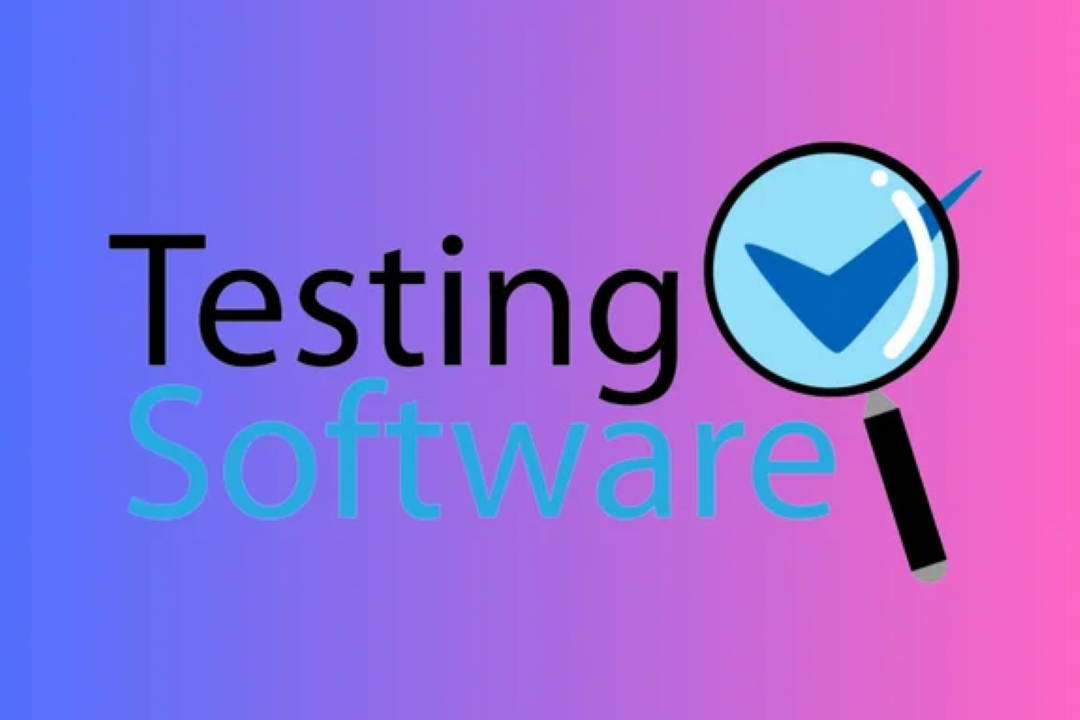Scope Of Cloud Computing
Exploring the Future: The Expanding Scope of Cloud Computing
Scope Of Cloud Computing
The scope of cloud computing is vast and continually expanding, driven by its ability to enhance operational efficiency, reduce costs, and foster innovation across various industries. By providing scalable resources on demand, organizations can quickly adapt to changing market conditions and efficiently manage workloads without the burden of maintaining physical infrastructure. Cloud computing enables seamless collaboration, data sharing, and accessibility, empowering remote workforces and supporting real-time project management. Additionally, it offers advanced tools for data analytics, machine learning, and artificial intelligence, enabling businesses to harness the power of big data for informed decision-making. As more companies migrate to the cloud, the demand for skilled professionals in this field will continue to grow, making cloud computing a critical component of the modern digital landscape.
To Download Our Brochure: https://www.justacademy.co/download-brochure-for-free
Message us for more information: +91 9987184296
The scope of cloud computing is vast and continually expanding, driven by its ability to enhance operational efficiency, reduce costs, and foster innovation across various industries. By providing scalable resources on demand, organizations can quickly adapt to changing market conditions and efficiently manage workloads without the burden of maintaining physical infrastructure. Cloud computing enables seamless collaboration, data sharing, and accessibility, empowering remote workforces and supporting real time project management. Additionally, it offers advanced tools for data analytics, machine learning, and artificial intelligence, enabling businesses to harness the power of big data for informed decision making. As more companies migrate to the cloud, the demand for skilled professionals in this field will continue to grow, making cloud computing a critical component of the modern digital landscape.
Course Overview
The “Scope of Cloud Computing” course offers an in-depth exploration of the transformative power of cloud technology in today’s business landscape. Participants will learn about various cloud service models, including Infrastructure as a Service (IaaS), Platform as a Service (PaaS), and Software as a Service (SaaS), and how these models can be leveraged to improve efficiency and reduce operational costs. The course covers essential topics such as cloud deployment strategies, security considerations, data management, and emerging trends in cloud computing, providing learners with the knowledge and skills needed to navigate and succeed in the rapidly evolving cloud ecosystem. Through real-time projects and practical exercises, participants will gain hands-on experience, preparing them for a successful career in cloud computing.
Course Description
The “Scope of Cloud Computing” course provides a comprehensive overview of cloud technology, focusing on its various service models such as IaaS, PaaS, and SaaS. This course delves into cloud deployment strategies, security protocols, data management, and the latest industry trends, equipping learners with the essential skills to efficiently leverage cloud solutions in real-world scenarios. Through a combination of theoretical knowledge and practical projects, participants will emerge prepared to tackle the challenges and opportunities presented by cloud computing in diverse business environments.
Key Features
1 - Comprehensive Tool Coverage: Provides hands-on training with a range of industry-standard testing tools, including Selenium, JIRA, LoadRunner, and TestRail.
2) Practical Exercises: Features real-world exercises and case studies to apply tools in various testing scenarios.
3) Interactive Learning: Includes interactive sessions with industry experts for personalized feedback and guidance.
4) Detailed Tutorials: Offers extensive tutorials and documentation on tool functionalities and best practices.
5) Advanced Techniques: Covers both fundamental and advanced techniques for using testing tools effectively.
6) Data Visualization: Integrates tools for visualizing test metrics and results, enhancing data interpretation and decision-making.
7) Tool Integration: Teaches how to integrate testing tools into the software development lifecycle for streamlined workflows.
8) Project-Based Learning: Focuses on project-based learning to build practical skills and create a portfolio of completed tasks.
9) Career Support: Provides resources and support for applying learned skills to real-world job scenarios, including resume building and interview preparation.
10) Up-to-Date Content: Ensures that course materials reflect the latest industry standards and tool updates.
Benefits of taking our course
Functional Tools
1 - AWS (Amazon Web Services): AWS is one of the leading cloud computing platforms globally, offering a wide range of services including computing power, storage options, and networking capabilities. In the ‘Scope of Cloud Computing’ course, students will engage with AWS tools to learn how to deploy applications, manage databases, and utilize various services like EC2, S3, and Lambda. The hands on experience with AWS equips students with practical skills highly valued in the industry.
2) Microsoft Azure: The course provides comprehensive training on Microsoft Azure, a popular platform that integrates cloud services with an extensive array of tools designed for developing, managing, and deploying applications. Students will learn about Azure’s Virtual Machines, Azure Functions, and Blob Storage, among other services. This knowledge helps students understand hybrid cloud architectures and how to integrate Azure services with existing IT infrastructures.
3) Google Cloud Platform (GCP): GCP training within the course introduces students to Google’s suite of dedicated cloud tools designed for data storage, machine learning, and application development. With an emphasis on services such as Google Compute Engine and BigQuery, students will discover how to leverage GCP for scalable solutions, ensuring they are well versed in managing large datasets and executing data analytics tasks.
4) Docker: Docker is an essential tool in modern cloud development, allowing for containerization of applications. In this course, students will learn how to create, manage, and deploy Docker containers for improved efficiency and scalability. Understanding containerization is crucial for developing microservices architectures and ensures that students can streamline deployment processes in cloud environments.
5) Kubernetes: As a container orchestration platform, Kubernetes is vital for managing large numbers of containerized applications. The course covers how to deploy, scale, and operate applications in Kubernetes, which is integral for ensuring high availability and resilience in cloud environments. By mastering Kubernetes, students will enhance their capability to manage complex cloud infrastructures effectively.
6) Terraform: Infrastructure as Code (IaC) tools like Terraform are essential for automating cloud infrastructure management. The course incorporates Terraform training, allowing students to learn how to define and provision cloud resources through code. This skill is crucial for maintaining consistency and repeatability in cloud infrastructure setups, ensuring students are prepared for real world applications in cloud environments.
7) Cloud Security: This course emphasizes the importance of security in cloud computing environments. Students will learn about best practices for securing cloud resources, including identity and access management (IAM), encryption, and compliance with standards such as GDPR and HIPAA. Understanding cloud security is essential for mitigating risks and ensuring that organizations protect their sensitive data effectively.
8) Serverless Architecture: Students will explore serverless computing models, which allow developers to build and run applications without needing to manage infrastructure. The course covers platforms like AWS Lambda and Azure Functions, focusing on the advantages of reduced operational overhead and scalability. Understanding serverless architecture enables students to innovate and deploy applications quickly and efficiently.
9) Cloud Data Management: Data management practices in cloud environments are critical for successful project implementations. Students will learn how to utilize cloud based databases, data lakes, and data warehouses, including services like Amazon RDS, Google Cloud Storage, and Azure SQL Database. This training prepares students to handle large datasets and optimize data storage for performance and cost effectiveness.
10) DevOps Practices: Integrating DevOps methodologies into cloud projects is essential for fostering collaboration between development and operations teams. The course will cover tools and practices such as Continuous Integration (CI), Continuous Deployment (CD), and monitoring, using platforms like Jenkins and GitHub Actions. Students will understand how to streamline workflows and improve the software development lifecycle in cloud environments.
11 - Hybrid and Multi cloud Strategies: This section of the course addresses the growing trend of using multiple cloud platforms. Students will learn how to design and implement hybrid cloud solutions that combine on premises infrastructure with public cloud resources, as well as strategies for managing multiple cloud environments effectively. This knowledge equips students to meet diverse business needs and scalability challenges.
12) Networking in the Cloud: Understanding cloud networking is vital for establishing secure connections between applications and resources. The course provides insights into Virtual Private Cloud (VPC) configurations, load balancers, and firewalls, as well as setting up secure network architectures. Students will learn how to design robust network infrastructures that facilitate secure and reliable communication in the cloud.
13) Cost Management and Optimization: Cloud cost management is crucial for businesses to maximize their investments in cloud technologies. Students will learn how to track and optimize cloud spending using tools like AWS Cost Explorer or Azure Cost Management. Understanding budgeting, resource allocation, and optimization techniques enables students to help organizations manage costs effectively while maximizing performance.
14) Project Management in Cloud: This course will also cover essential project management principles tailored to cloud computing projects. Students will learn methodologies like Agile and Scrum, focusing on how to manage cloud project timelines, deliverables, and team collaboration. This knowledge ensures that students are equipped to lead successful cloud initiatives.
15) Real World Case Studies: At JustAcademy, students will have the opportunity to delve into real world case studies highlighting successful cloud projects across diverse industries. Analyzing these examples allows students to apply their theoretical learning to practical scenarios, enhancing their problem solving skills and providing insights into industry best practices.
16) Industry Recognized Certifications: During the course, students will be prepared for industry recognized certifications such as AWS Certified Solutions Architect, Microsoft Certified: Azure Administrator, or Google Professional Cloud Architect. Achieving these certifications will not only validate their skills but also enhance their employability in a competitive job market.
Each of these points contributes to a comprehensive learning experience, equipping students at JustAcademy with the knowledge and skills needed to succeed in the evolving cloud computing industry.
Browse our course links : https://www.justacademy.co/all-courses
To Join our FREE DEMO Session: Click Here
This information is sourced from JustAcademy
Contact Info:
Roshan Chaturvedi
Message us on Whatsapp: +91 9987184296
Email id: info@justacademy.co
Learn Kotlin Android Development
How Long Does It Take To Learn Digital Marketing
Asp Net Interview Questions And Answers












